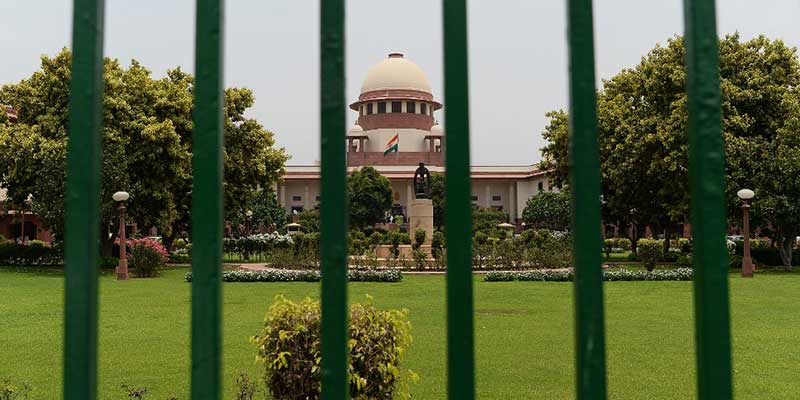- India
- Apr 09
SC fixes timeline for Governors to give assent to Bills passed by Assemblies
• The Supreme Court cleared 10 Bills which were stalled and reserved by Tamil Nadu Governor R.N. Ravi for President’s consideration.
• The Supreme Court held that Governors cannot sit over Bills passed by the state legislature and fixed a timeline of one to three months for their actions under the Constitution.
• A bench of Justices J.B. Pardiwala and R. Mahadevan said the expression “as soon as possible” permeates Article 200 with a sense of expediency, and does not allow the Governor to sit on the Bills and exercise pocket veto over them.
• Article 200 of the Constitution empowers the Governor to give assent to Bills presented to him, withhold the assent or to reserve it for the consideration of the President.
• The verdict holds importance as several opposition-ruled states such as Kerala, Punjab, Telangana and West Bengal have approached the Supreme Court against delay in giving assent by Governors to Bills passed by the respective state Assemblies.
• The Supreme Court exercised its plenary power under Article 142 of the Constitution to make the Bill re-presented to the Tamil Nadu Governor, as deemed to have been passed.
Guidelines for Governors to act on Bills
• The bench noted there is no expressly specified time limit for the discharge of the functions by the Governor under Article 200 of the Constitution.
• The bench said it is fixing a timeline of one to three months for the Governors to decide the fate of Bills cleared by the state Assemblies, keeping in mind the constitutional significance of Article 200 and the role it plays in the federal polity of the country.
• Failure to comply with this timeline would make the inaction of the Governors subject to judicial review by the courts, the bench cautioned.
The timelines mentioned are:
i) In case of either withholding of assent or reservation of the Bills for the consideration of the President upon the aid and advice of the state council of ministers, the Governor is expected to take such action forthwith subject to a maximum period of one month.
ii) In case of withholding of assent, contrary to the advice of the state council of ministers, the Governor must return the Bills together with a message within a maximum period of three months.
iii) In case of reservation of Bills for the consideration of the President, contrary to the advice of the state council of ministers, the Governor shall make such reservation within a maximum period of three months.
iv) In case of presentation of Bills after reconsideration in accordance with the first proviso (of Article 200), the Governor must grant assent forthwith subject to a maximum period of one month.
v) If he decides to declare withholding of assent, the settled position of law is that when no time limit for the exercise of power is prescribed, the same must be exercised in a reasonable time period.
Governor’s role in approving a Bill
• According to Article 168, the legislature of a state shall consist of the governor and the Legislative Assembly.
• He/she cannot be a member of either House of that Legislature.
• In order to become an Act, every Bill passed by the state legislature must receive his/her assent or, having been reserved by him for President’s consideration, receive the assent of the President.
• If the governor or the President, as the case may be, withholds his/her assent, the Bill fails to become law.
• Article 200 of the Constitution bestows on the governor the power to provide assent to the Bills passed by the state legislature.
• Article 200 provides that when a Bill passed by the state legislature, is presented to the governor, the governor may take any of the following steps:
a) He/she assents to the Bill, or
b) He/she withholds assent therefrom, or
c) He/she reserves the Bill for the President’s consideration, or
d) The Governor may, as soon as possible, return the Bill (other than a Money Bill) with a message for reconsideration by the state legislature. But, if the Bill is again passed by the legislature with or without amendment, the governor shall not withhold assent therefrom (First Proviso).
e) If in the opinion of the Governor, the Bill, if it became law, would so derogate from the powers of the High Court as to endanger its constitutional position, he shall not assent to but shall reserve it for the consideration of the President (Second Proviso).
• If the Governor reserves a Bill for President’s consideration, the enactment of the Bill then depends on the assent or refusal of assent by the President.
• In the case of a reserved Bill, the President shall, under Article 201, either declare his assent or withhold his assent thereto. Instead of following either of these courses, the President may (if the Bill is not a Money Bill) direct the governor to return the Bill together with a message to the state legislature for reconsideration. The state legislature shall then reconsider the Bill within six months of its receipt and, if it is again passed, it shall be presented again to the President for his consideration. In contrast with the power of the governor regarding a reconsidered Bill, it is not obligatory for the President to give his assent to a reconsidered Bill.
Manorama Yearbook app is now available on Google Play Store and iOS App Store

